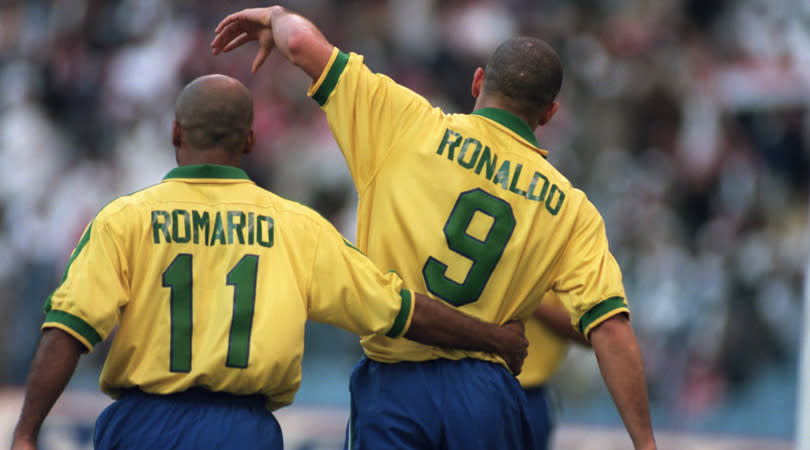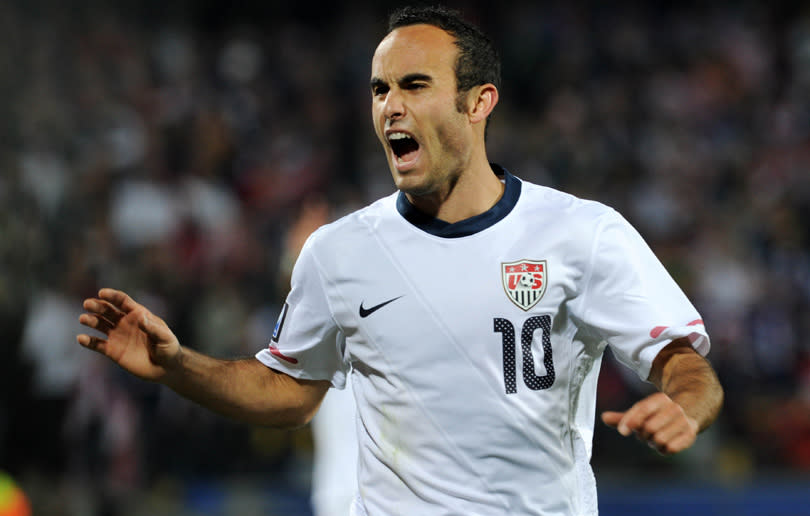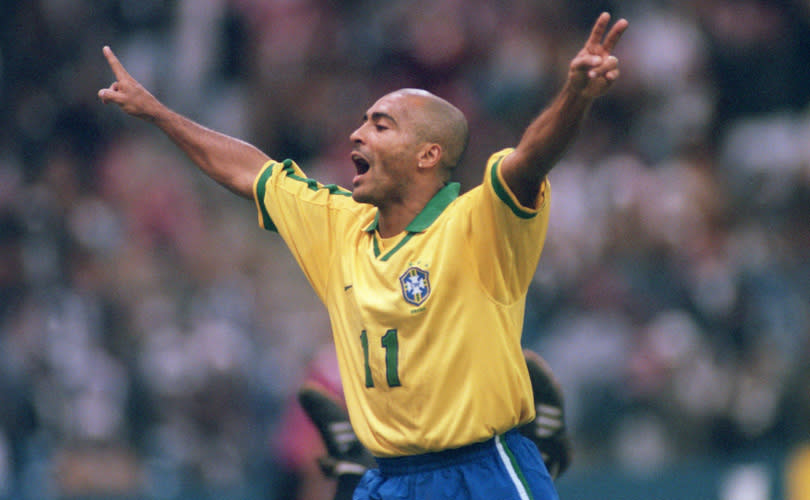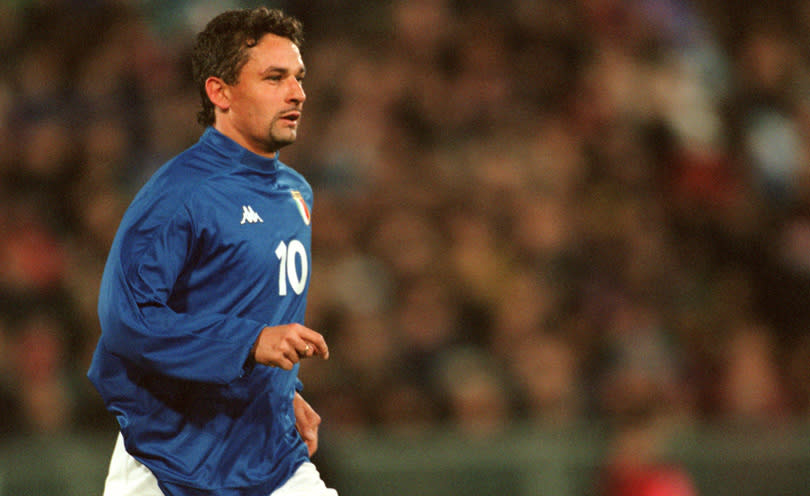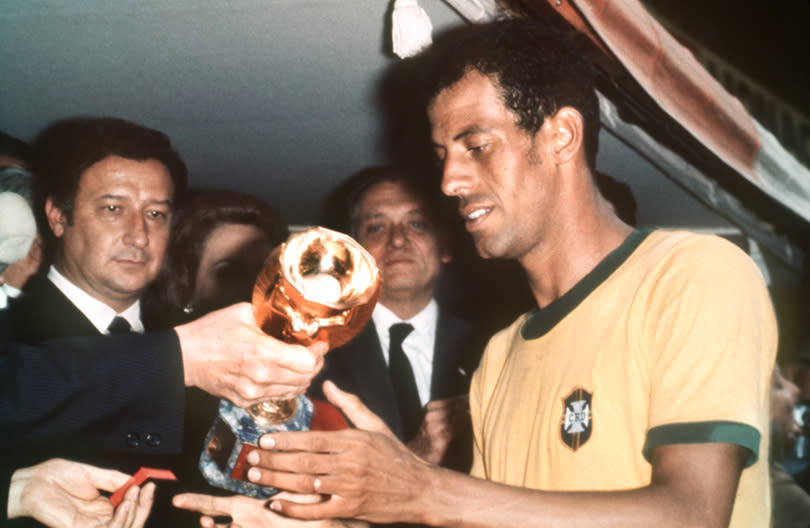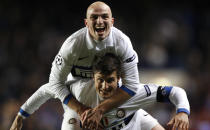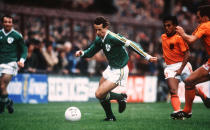The 10 most shocking exclusions from World Cup squads
Gunnar Nordahl (1950)
A self-inflicted move on the part of Sweden's FA, who'd inexplicably banned professionals from abroad from playing for the national team. Gunnar Nordahl was his country’s undoubted star, having led Sweden to success at the 1948 Olympics.
He was top scorer in that tournament, and had plundered 43 goals in 33 caps by the time his move to Milan essentially forced him into an early retirement from international football. Sweden finished third at the 1950 World Cup with a team of domestic amateurs but could have won if their fearsome strikeforce of Nordahl, Gunnar Gren and Niels Lindholm had been allowed to play.
All three had joined Milan in 1949, ruling themselves out of contention. While a relaxing of the rules meant that Gren and Lindholm eventually got their chance to play in the 1958 World Cup – where Sweden were beaten finalists – Nordahl had already hung up his boots by that stage. He remains the third-highest scorer in Serie A history.
Carlos Alberto (1966)
A rampaging right-back with excellent leadership skills, Alberto was surprisingly left out of Brazil’s 1966 World Cup squad. He was part of the 44-man training group selected by Vicente Feola but failed to make the final cut.
Tensions in the camp were behind what proved to be Brazil’s worst performance at a World Cup, as the holders crashed out at the group stage.
Alberto’s good form for Santos got him reinstated to the national team, and subsequently earned him the captain's armband as Brazil tasted success at Mexico 1970. In the final, he put the finishing touch to one of the tournament’s greatest ever goals, crashing home a Pele lay-off at the end of a long passing move.
GREAT GOALS RETOLD Carlos Alberto vs Italy, 1970 – in his own words
Tony Adams (1990)
The first player to represent England born after the 1966 World Cup win, Adams made his debut against Spain in 1987. He went to Euro '88 the following year, where he scored against the Soviet Union, but Bobby Robson’s side finished bottom of their group.
Adams nonetheless looked set to be an important component of England's future, with his doughty defending and organisational skills coming to the fore – but he was left out of the squad for Italia '90 only a year on from helping Arsenal to the First Division title.
Despite not featuring once in qualifying for the competition, Derby's Mark Wright was preferred to the young Gunners captain. In fairness, the Rams defender played a significant role for England after Bobby Robson switched to a back three following a stodgy opening game against the Republic of Ireland – and even grabbed the only goal in the Three Lions' 1-0 win over Egypt.
Liam Brady (1990)
Everyone knew what to expect from Jack Charlton’s Irish side, but dealing with it was another matter entirely. They had a direct and bracing style which plenty of more talented teams failed to cope with.
Craft and subtlety weren’t high on the agenda, and skilful playmakers like Liam Brady suffered as a result. One of Ireland’s greatest ever players, he retired during qualification for the World Cup, but then reversed his decision before the tournament.
Brady, however, was one of two players who stayed at home despite having taken part in some of the qualifiers, while Charlton took three uncapped players with him to Italy. Ireland reached the quarter-finals, where they were knocked out by hosts Italy.
Paul Gascoigne (1998)
Gazza was undoubtedly past his best in 1998, yet there was still a strong romantic appeal to the idea of taking the darling of Italia '90 to another World Cup. His career had been blighted by injuries and personal demons, but he still had captivating ability with the ball at his feet.
He’d recently left Rangers to help Middlesbrough return to the Premier League, although his fitness and focus were again under question. Still, Gascoigne was part of a pre-tournament training camp in La Manga – but then became one of six omitted from Glenn Hoddle’s final squad.
The maverick midfielder was devastated when told the news in Hoddle's hotel room, which he duly went on to trash. He never played for England again.
Roberto Baggio (2002)
Baggio had unfinished business as far as the World Cup was concerned. He’d been to the previous three tournaments, once coming agonisingly close to success, and was hopeful of making it to a fourth.
A decisive missed penalty in the USA '94 Final shootout weighed heavily on his shoulders, and eight years on he was keen to make amends. After leaving Inter, Baggio had received lucrative offers from abroad but elected to stay in Serie A to boost his chances of being selected.
The silky striker started the 2001/02 season at Brescia in fine fettle, scoring eight goals in his first nine matches – but then injury struck. He returned to save his club from relegation, but it wasn’t enough to convince Giovanni Trapattoni that he deserved a place at the World Cup. Supporters were devastated and Italy were eliminated in the second round.
Romario (2002)
Another all-time great keen to extend his international career at the World Cup in Japan and South Korea. The Brazilian goal machine was popular with the public, but not so much his manager and various team-mates.
Perceived as a disruptive influence, Romario's relationship with Luiz Felipe Scolari had soured after the 2001 Copa America when he unexpectedly withdrew from the squad to play for Vasco da Gama and then go on holiday.
Even at the age of 36 he struggled to follow the rules, and was punished by missing the World Cup. Not even impressive form for his club side, and an emotional appeal to the manager, was enough to change Scolari’s mind. Brazil went on to lift the trophy, with Ronaldo, Rivaldo and Ronaldinho integral to their triumph.
Esteban Cambiasso and Javier Zanetti (2010)
Appointing Diego Maradona as national team manager was a desperate last throw of the dice. World Cup qualification was secured in dramatic circumstances, but there was little to vindicate Maradona aside from his legendary status.
Puzzling decisions were a hallmark of his brief tenure as Argentina boss, and none more so than the double exclusion of Esteban Cambiasso and Javier Zanetti from his squad for South Africa. Both were central to Jose Mourinho’s Treble-winning 2009/10 season at Inter, but somehow missed out.
In contrast, Fabricio Coloccini and Jonas Gutierrez – decent but unremarkable players fresh from a season in the Championship with Newcastle – made the cut and even started the opening game.
Landon Donovan (2014)
It’s difficult to overstate Donovan’s place in the USA’s football landscape. Widely regarded as the national team’s greatest ever player, he collected 157 caps and appeared in three successive World Cups.
He was keen to make it four in 2014, but it wasn’t to be. Donovan had missed a few qualifying matches but was still considered an automatic selection by most, apart from the person who mattered: Jurgen Klinsmann controversially dropped him from his preliminary squad.
Some fresh faces, including 19-year-old Julian Green, were included at Donovan’s expense as the USA reached the second round... where they exited to Belgium.

 Yahoo Sport
Yahoo Sport 






































